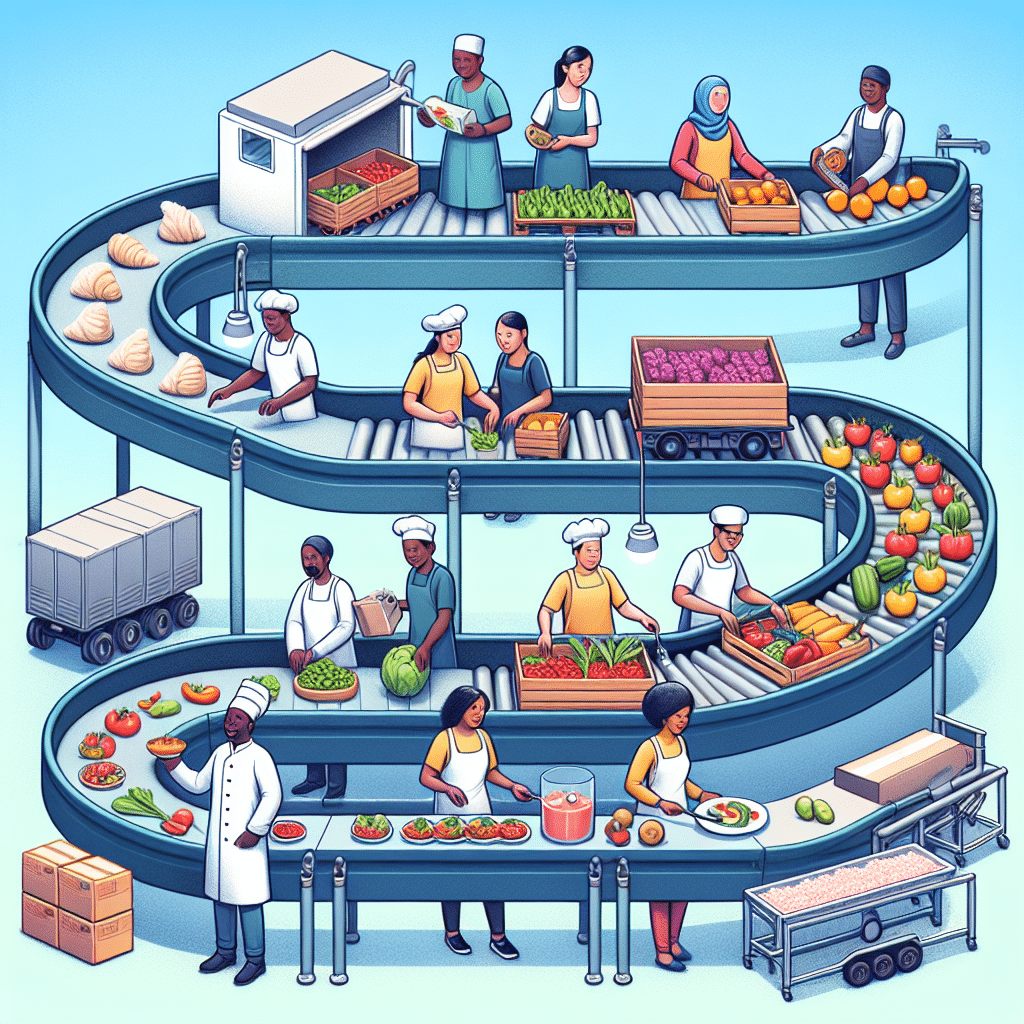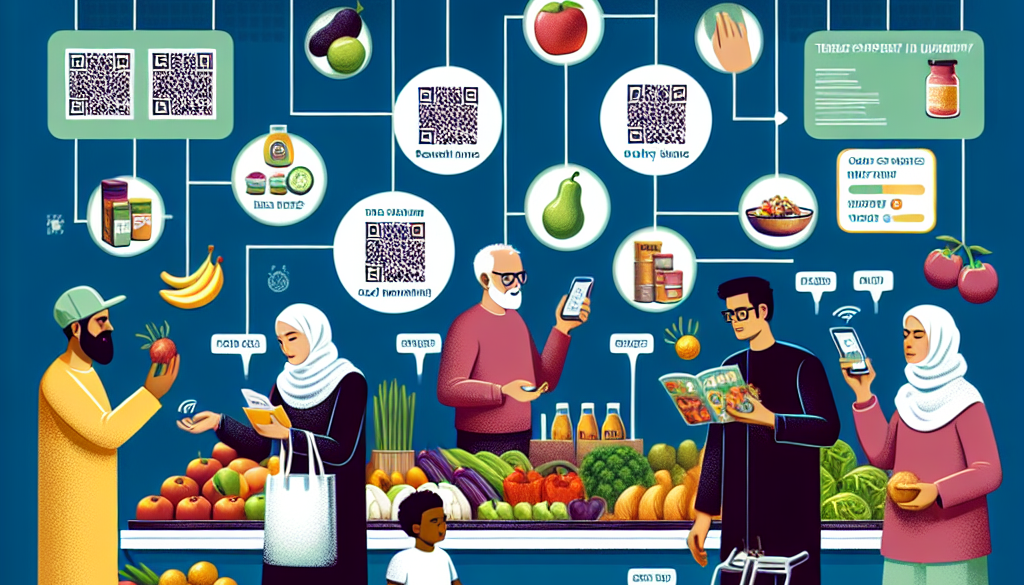Transparency In The Food Supply Chain And Food Safety
-
Table of Contents
- Transparency in the Food Supply Chain: Ensuring Food Safety
- The Importance of Transparency in the Food Supply Chain
- Challenges to Achieving Transparency
- Statistics Highlighting the Need for Transparency
- Technological Innovations Promoting Transparency
- Best Practices for Enhancing Transparency
- Regulatory Frameworks Supporting Transparency
- Conclusion: The Path Forward for Food Safety
- ETprotein: Your Partner for High-Quality Protein Products
Transparency in the Food Supply Chain: Ensuring Food Safety

The modern consumer is increasingly concerned about the quality and safety of the food they consume. With the globalization of food production and distribution, ensuring the safety and transparency of the food supply chain has become a complex challenge. This article delves into the importance of transparency in the food supply chain and how it relates to food safety, providing valuable insights and statistics to highlight the current state of the industry.
The Importance of Transparency in the Food Supply Chain
Transparency in the food supply chain is crucial for several reasons:
- Consumer Trust: Consumers are more likely to trust and remain loyal to brands that are open about their sourcing, production, and distribution processes.
- Food Safety: Clear visibility into the supply chain helps identify and address potential food safety issues before they reach consumers.
- Regulatory Compliance: Many countries have strict regulations regarding food safety and traceability, and transparency helps companies comply with these laws.
- Sustainability: Transparency can also highlight sustainable practices, which are increasingly important to consumers and stakeholders.
Challenges to Achieving Transparency
Despite its importance, achieving transparency in the food supply chain is fraught with challenges:
- Complex Supply Chains: Global supply chains can involve numerous stakeholders, making it difficult to track and verify information.
- Cost: Implementing systems for greater transparency can be costly, especially for small and medium-sized enterprises.
- Technology Limitations: Not all players in the supply chain have access to the necessary technology to facilitate transparency.
- Resistance to Change: Some companies may resist transparency due to fear of revealing proprietary information or exposing vulnerabilities.
Statistics Highlighting the Need for Transparency
Recent statistics underscore the urgency of enhancing transparency in the food supply chain:
- According to a 2020 survey by Label Insight, 94% of consumers are likely to be loyal to a brand that offers complete transparency.
- The Centers for Disease Control and Prevention (CDC) estimates that each year roughly 1 in 6 Americans (or 48 million people) get sick from foodborne diseases.
- A study by the Food Marketing Institute (FMI) found that 75% of consumers would switch to a brand that provides more in-depth product information, beyond what’s provided on the physical label.
Technological Innovations Promoting Transparency
Technological advancements are making it easier for companies to achieve transparency in their supply chains:
- Blockchain: This technology provides a secure and immutable record of transactions, making it easier to trace the journey of food products from farm to table.
- Internet of Things (IoT): IoT devices can monitor conditions during transport and storage, ensuring that food safety standards are maintained.
- Big Data Analytics: Analyzing large datasets can help predict and prevent potential food safety issues.
- Cloud Computing: Cloud-based platforms allow for real-time sharing of supply chain information among stakeholders.
Best Practices for Enhancing Transparency
Companies can take several steps to improve transparency in their food supply chains:
- Adopting Traceability Systems: Implementing systems that track products at every stage of the supply chain is essential.
- Partnering with Suppliers: Building strong relationships with suppliers who are committed to transparency and food safety is crucial.
- Investing in Technology: Leveraging technologies like blockchain and IoT can significantly enhance transparency.
- Engaging with Consumers: Providing clear and accessible information about sourcing and production practices helps build consumer trust.
Regulatory Frameworks Supporting Transparency
Governments around the world have recognized the importance of transparency in the food supply chain and have enacted various regulations:
- The Food Safety Modernization Act (FSMA): In the United States, the FSMA focuses on preventing food safety problems rather than reacting to them.
- The General Food Law Regulation (EU): In the European Union, this regulation requires food businesses to ensure the traceability of food, feed, and food-producing animals.
- The Food Safety and Standards Authority of India (FSSAI): In India, the FSSAI has established comprehensive guidelines for food safety and standards.
Conclusion: The Path Forward for Food Safety
Transparency in the food supply chain is not just a trend but a necessity for ensuring food safety and maintaining consumer trust. By embracing technological innovations, adhering to best practices, and complying with regulatory frameworks, companies can significantly improve the transparency of their supply chains. This, in turn, will lead to safer food products and a more informed and satisfied consumer base.
ETprotein: Your Partner for High-Quality Protein Products
In the context of food safety and supply chain transparency, ETprotein stands out as a company committed to quality and consumer trust. ETprotein’s range of organic bulk vegan proteins and L-(+)-Ergothioneine (EGT) products are produced with the highest standards of safety and transparency. Their offerings, which include a variety of plant-based proteins and EGT grades, cater to diverse industries while ensuring non-GMO, allergen-free attributes, and high purity levels.
For businesses looking to source reliable and transparently produced protein products, ETprotein is an excellent choice. Their commitment to quality and customer service makes them a valuable partner in the food and beverage industry.
About ETprotein:
ETprotein, a reputable protein and L-(+)-Ergothioneine (EGT) Chinese factory manufacturer and supplier, is renowned for producing, stocking, exporting, and delivering the highest quality organic bulk vegan proteins and L-(+)-Ergothioneine. They include Organic rice protein, clear rice protein, pea protein, clear pea protein, watermelon seed protein, pumpkin seed protein, sunflower seed protein, mung bean protein, peanut protein, and L-(+)-Ergothioneine EGT Pharmaceutical grade, L-(+)-Ergothioneine EGT food grade, L-(+)-Ergothioneine EGT cosmetic grade, L-(+)-Ergothioneine EGT reference grade and L-(+)-Ergothioneine EGT standard. Their offerings, characterized by a neutral taste, non-GMO, allergen-free attributes, with L-(+)-Ergothioneine purity over 98%, 99%, cater to a diverse range of industries. They serve nutraceutical, pharmaceutical, cosmeceutical, veterinary, as well as food and beverage finished product distributors, traders, and manufacturers across Europe, USA, Canada, Australia, Thailand, Japan, Korea, Brazil, and Chile, among others.
ETprotein specialization includes exporting and delivering tailor-made protein powder and finished nutritional supplements. Their extensive product range covers sectors like Food and Beverage, Sports Nutrition, Weight Management, Dietary Supplements, Health and Wellness Products, and Infant Formula, ensuring comprehensive solutions to meet all your protein needs.
As a trusted company by leading global food and beverage brands and Fortune 500 companies, ETprotein reinforces China’s reputation in the global arena. For more information or to sample their products, please contact them and email sales(at)ETprotein.com today.












